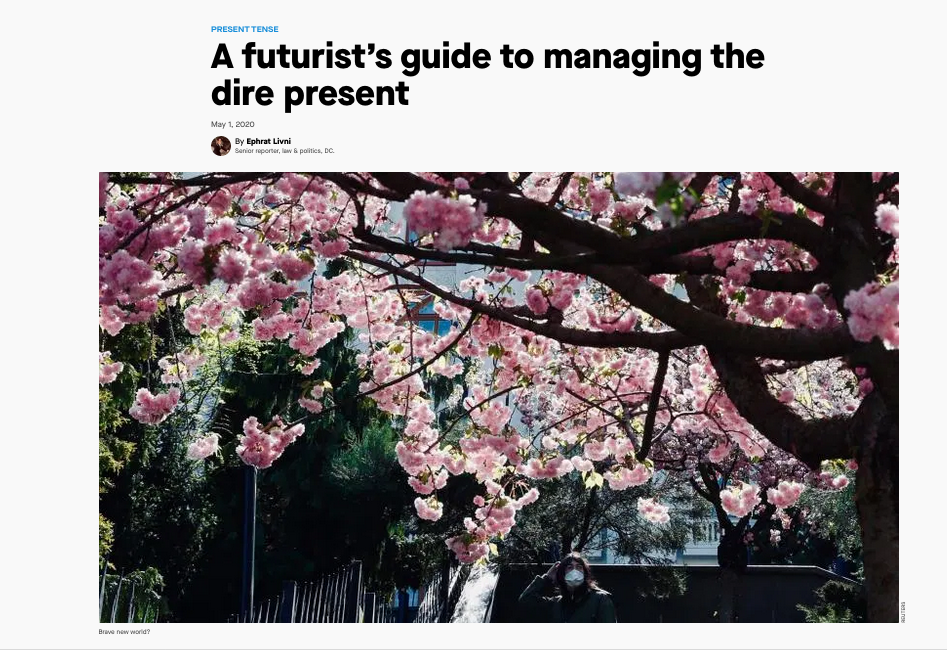
Rather a lovely review about what I’m up to nowadays. From QZ.com in the US. Read here.


Rather a lovely review about what I’m up to nowadays. From QZ.com in the US. Read here.
In 2011, a study reported that 95% percent of American adults had done at least one leisure activity in the past 24 hours, such as watching television, socialising, or reading for pleasure, but 83% reportedthey spent no time whatsoever relaxing or thinking.
If you think you’re busy, consider your frantic forebears.
In the 1830s, 70-hour working weeks were considered normal in the UK.
There were no days off, except Sundays, and people had none of the time saving technologies that we take for granted nowadays either.
Thankfully, during the 1900s, the shift towards factory production and then office work, along with unionised labour and progressive legislation, caused these hours to almost halve. The figure fell to 40-hours a week after 1945, and now undulates moderately around this number.
These are averages remember. Work has never been equally distributed.
These numbers hide a multitude of harried households and lethargic loafers. Even so, the length of the typical working week doesn’t appear to explain why so many people feel so busy most of the time or why, according to one Gallup poll, people “don’t have time to do everything that needs to be done.”
Clearly, something odd is going on. Either the numbers are not giving us the true picture or else we’re wasting our time, rushing hither and tither in a mindless dance of exhaustion, something that the philosopher Seneca complained about 2,000 years ago.
In his essay In Praise of Idleness, another philosopher, Bertrand Russell, makes a plea for “happiness and joy of life, instead of frayed nerves and weariness.” But he believed that such happiness would only occur if we did less work and developed what he referred to as: “a capacity for light-heartedness and play.” He believed this had been to some extent inhibited by the cult of efficiency.
He said this in 1935.
Little has changed since then, perhaps since Seneca’s time, except that the cult of efficiency has become a religion and we’re wearier, more anxious and less joyful than ever, especially at work.
I would like to consider two things in this context.
Firstly, I’d like to fleetingly consider what people spend their days doing, delve into why they might be feeling so busy, and examine why, deep down, some people might prefer being busy over and above a more leisurely lifestyle.
Secondly, I’d like to examine some of the consequences of being busy and consider a few alternatives. In particular, I would like to think about what we might not be doing, or achieving, by being so busy? Could we perhaps achieve more in the long run if we did less or acted slower in certain circumstances?
Let’s start with something that’s widely overlooked, which is societal acceleration. Almost everything is speeding up, along with our intolerance of things that are not. It’s called convenience and it runs a large part of the global economy and almost the entire digital economy.
Even walking speeds have accelerated. Gentle wandering has been overtaken by busy walking urgently focussed on a fixed destination.
In the early 1990s an American psychologist named n academic (Robert Levine) measured how long it took individuals in 31 different cities to walk 60 feet along an unobstructed pavement. 15 years later, a British psychologist (Richard Wiseman) repeated the research and found that walking speeds had accelerated by 10 per cent, with meandering Eastern cities catching up with their frenetic Western rivals.
Levine correlated this pace with economic well-being, population size, climate and, most interestingly of all perhaps, the degree of individualism vs. collectivism in a culture. Personally, I’d add incomes to this list because the richer people become the more valuable time becomes to them.
But before we rush along, one thing worth briefly examining is what exactly we mean when we use the term busy. In my view, when we think of someone being busy, we usually think in terms of someone having a lot to do, especially things that involve physical movement, someone rushing from one place to another or trying to complete a set task against the clock.
But definitions that hinge on rapid movement might be slightly out of date, especially when we consider the new world of work. Definitions involving movement largely date from a time when work was a largely physical process involving human muscle. We harvested things in fields and made things in factories. The faster people moved, the more work got done.
Being busy in this sense made sense. But these days, work is increasing something we do with our heads. It involves thinking, so being busy does not always equate with rapid movement let alone productivity.
Ann Burnett, a professor at North Dakota State University in the US, has studied the holiday letters of Americans going back to the 1960s, which she says serves as a proxy for the rise of busyness in America. Words that started to appear in the 70s and 80s — “hectic,” “crazy,” “consumed,” – are now increasingly common language, not only in the US, but elsewhere too.
As I said at the start, in the 1830s working six-days straight was considered perfectly normal, as were 70-hour work weeks, even for children. There were no annual holidays either. But throughout the 20th Century these hours declined significanly, so how can we account for this busyness?
The data varies slightly from survey to survey and from country to country, but overall the numbers show a clear, consistent and undeniable decline in the number of hours worked in almost every advanced economy in the world. Moreover, we no longer need to spend hours cooking our meals from scratch, washing our clothes by hand or cleaning our houses with brushes.
It’s possible, of course, that the numbers are wrong. People are notoriously bad at filling in time use surveys, but inaccuracies across every single survey?
I think not.
One explanation that I do subscribe to is that these numbers are averages and are therefore not reflective of the experience of millions of individuals.
Both work and leisure are fragmented, with some people receiving more and others receiving less. But even this explanation doesn’t ring true to me.
So, what on Earth is going on? Where is all the time going?
No matter how you slice the data, the vast majority of peoples’ time is spent doing just three things: sleeping, recreation and work. Surely, people can’t be busy sleeping, so that leaves work and recreation as the only possible culprits for contemporary busyness.
Let’s take a quick look at these starting with work.
Why might people feel so busy at work?
A 2019 study, quoted in The Times, says that the average worker in the UK spends 26 days a year in meetings, which is up from 23 days in 2018. Almost one million people claim to spend over half of every week in meetings and around a third say that this time is entirely wasted.
Pointless meetings could be one explanation for busyness at work. Another might be technology, more specifically, technology that does the exact opposite to what was intended. Email is a prime contender.
A survey quoted by the Huffington Post says that US workers spend 6.3 hours a day checking email, with 3.2 hours devoted to work emails and 3.1 hours devoted to non-work emails. This seems excessive, but as the cost of communications has rapidly fallen, the number of interactions has rapidly risen. Ease of use has led to rampant overuse. Daily work for many people now consists of nothing more than getting through their email inbox.
The wonderfully named Wasting Time at Work Survey, found that 89% of people admit they waste time at work with a small percentage claiming they waste more than half of a typical 8-hour workday doing things that have absolutely nothing whatsoever to do with work. What are these things?
Gorging on Google and flirting on Facebook top the list, but digital distractions are almost endless.
I could go on, but busyness beckons, so let’s look at recreation as the other potential culprit for why so many people feel so overwhelmed.
Again, I’m afraid the main culprit here might be technology.
Let me give you an example. I went through a spell of writing TripAdvisor reviews online. It all started innocently enough, but once you start it can be hard to stop. These companies really do know how to press our buttons, so we’ll click on theirs.
It’s called the ludic loop, a term that describes the way in which people are given tiny rewards in order to keep them coming back over and over again in a vain attempt to win larger rewards. Slot machines in Casinos are programmed to work the same way. Either way, I was being played.
TripAdvisor would send me emails saying that someone had found my review really helpful. This didn’t influence my behaviour at all, but emails saying I was in the top 1% of reviewers did. It got so bad at one point that I was going to restaurants, not because I was hungry, but because I wanted to write a review.
But it’s not just email, or social media, that’s causing a problem. As Douglas Adams once said: “Technology is anything that doesn’t work properly yet.”
I’ll give you another example.
Back in the day you put coins into individual parking meters and that was it. Then came a single machine that looked after numerous parking spaces and issued paper tickets. Recently this was upgraded so that payments could be made in advance and remotely using a phone. The latest development uses voice recognition. The idea is you say your car registration out loud and the machine recognises the number. Great when it works. Only sometimes it doesn’t. Sometimes these machines don’t even recognise their own mediocrity. What should have taken 30 seconds for a friend of mine took well over 30 minutes.
Something else that’s happening is that companies are using us to do the work that was previously done by someone else. It happens at work, because companies no longer employ as many people as they should, and it happens outside of work too.
Self-check-out terminals in supermarkets are a good example. It’s hard to believe, but there was a time, not so long ago, when supermarkets employed people to do this for you and even packed your shopping into bags too.
All these things consume our time.
But I’m not sure that technology, or downsizing alone, quite explains it. I actually think most people are busy because they want to be.
By making ourselves busy, or at least by feeling busy, we shield ourselves from getting to know ourselves and other people better. A full diary is a way of hiding from people, especially ourselves. Busyness insulates us against thinking about what we’re really doing or where we’re really going.
As a New York Times article called The Busy Trap put it: “Busyness serves as a kind of existential reassurance, a hedge against emptiness; obviously, your life cannot possibly be silly, trivial or meaningless if you are so busy.”
Another reason people might like to be busy is the belief that if you give the outward impression that you’re a busy person then other people are less likely to trouble you. I once had a t-shirt with the slogan “Jesus is Coming. Look Busy”, which sums up the situation perfectly.
Employers, seeing someone briskly walking about the office, or running purposely between meetings, will assume that they’re working. In contrast, someone looking out of a window, quietly thinking, will generally be considered a time waster. One looks like work, the other looks like loafing.
There is possibly a third reason, too, which is that by saying you are busy you are saying that time is important to you, which is to say that you are important. Saying you are busy implies you are successful or attempting to be. Busyness is currency. It’s a form of status, a certificate of indispensability.
“How are you doing?” “Double busy”. “You?” “Yeah, same.”
But what might some of the other consequences of busyness be?
The bottom line is that taking one’s time can pay dividends. You’ve all heard of Charles Darwin and his book On the Origin of the Species, but did you know that while he wrote a draft of the book in 1839, he didn’t finish it until 1858.
Darwin’s book on earthworms took even longer, an astonishing 44 years.
How so? Well it was because Darwin liked to take his time. He was a self-confessed missionary for procrastination. Procrastination is a word that’s nowadays more associated with inefficiency than rigorous thought, but great insights and ideas don’t evolve overnight.
In a study looking at significant scientific discoveries in the 20th Century, Alan Lightman, a Professor at MIT, found that not being busy – or being “separate from the rush” as he put it – played a significant role, so Darwin isn’t an anomaly.
Contrast this approach with the deadline driven, outcome orientated, multi-tasking, need it tomorrow world of today, where people seem incapable of concentrating on any one thing for any decent amount of time. Putting to one side the health consequences of frantic busyness, what’s being lost here is the ability to dream, to explore and to think, especially curiously and creatively.
Reflective thought – which takes time – is linked to things like innovation, but also to something far more important too, which is the quality of human relationships.
In 1973, a classic study looked at whether the amount of busyness induced in a subject had a major negative impact on what the authors termed “helping behaviour” in an emergency. Turns out it did. In spades. The study was based on the parable of the Good Samaritan and the researchers had three hypotheses, one of which was that people that were rushed, busy or in a hurry would be less likely to offer assistance to someone.
I won’t go into the methodology in detail, but essentially participants were asked some questions and then asked to travel to another building to continue the experiment.
What the participants did not know was that the researchers varied the amount of time the subjects had to travel from one building to the next and gave different explanations as to what the subjects would be doing once they got there. On the way to the second building all of the subjects encountered a man who was slumped in a doorway, moaning and coughing. Clearly someone that might need assistance.
The researchers created a scale to indicate whether or not the subjects noticed the man and the degree of assistance that was offered: a Zero meant they stepped over the man on their way to the second building, whereas a Five meant they refused to leave him until help arrived, or insisted that they took him somewhere to get assistance.
You’ll have guessed the results already. The amount of busyness induced in the subjects had a significant impact on empathetic behaviour, even among subjects that were told they’d hear about the parable of the Good Samaritan in the second location. In low hurry situations slightly over 60% of people noticed the man and offered assistance, whereas in high hurry situations only 10% did.
I should point out that there was noticeable anxiety among many of the subjects once they arrived at the second building, including among those who failed to stop, which I suppose offers some level of hope.
I’d love to go on, but you are probably busy people. Suffice to say that I think you should all slow down and think outside of your in-box once in a while. Allow your mind to not only rest, but to wander also.
Einstein was famous for his daily walks in the woods. and Bill Gates took the idea further by having think weeks in a disconnected cabin in the woods. Carl Jung did much of his most creative thinking in his country house well away from his busy practice in Zurich. Even Jack Welch, formerly the CEO of one of the world’s most admired companies, General Electric, spent an hour each day looking out of the window
Neurologically, downtime like this is known as undirected thought and it’s extremely valuable in the context of original thinking.
The point here, and it’s an important one, is that in many instances, being away from work, or doing something that doesn’t appear to be work, makes people more productive, not less.
So, my suggestion that we all follow suit. Starting next week, add nothing to your diary. Schedule one hour each week to do absolutely nothing, certainly nothing that remotely looks like work. No email, no typing, no phone calls and especially no meetings. Look out of a window. Go for a walk. Or embrace Slow Media and read a physical book. If any of this works up the stakes. Embrace Slow Business. Do absolutely nothing for an hour each day, and while you are at it, slow down the general pace at which you do everything from walking and talking to emailing and eating.
If you think this this is impossible, possibly because you’re busy and important, here’s a video of Bill Gates talking to Warren Buffet about his diary.
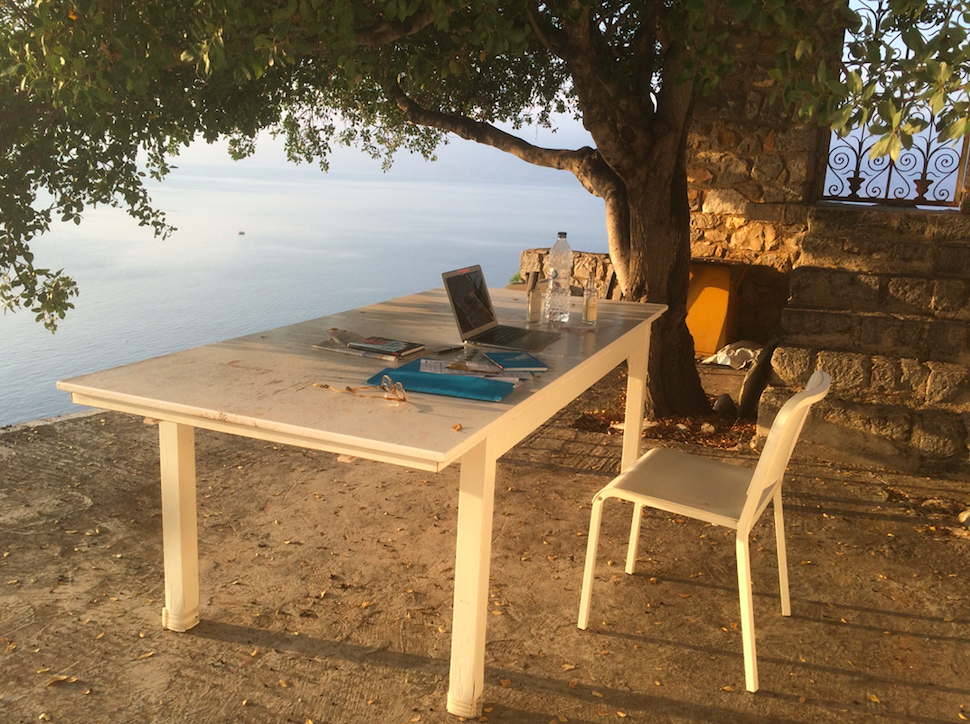
I suppose if you’re writing a book about wasting time, empty spaces, messing around and doing nothing at all it goes without saying that you need to waste time, gaze into space, mess about and do nothing at all. I spent most of my day today watching ants.

This sits alongside my last post, perhaps.
I’m looking out of a window at 39,000 feet thinking about what the lack of oxygen outside might be doing to my brain. I’m wondering why my mind is wandering and puzzling how it’s possible that the altitude, or perhaps it’s the expansive horizon, is elevating my thinking. I’m also questioning why I never think like this when I’m frantically searching for a parking space at the Heston Motorway Services (Eastbound), on a modestly miserable Monday.
Astronauts have reported similar feelings of wonderment and even bewilderment looking back at the earth from higher up in space. Indeed, there’s a phrase for this shift in perception – it’s called the overview effect and describes how daily distractions disappear when viewed from such an elevated perspective. One can rise above any inconsequential thoughts and see everything as being connected to everything else, at which point one can glimpse the faint reflection of human continuity. The vastness of space somehow makes people feel simultaneously special and totally irrelevant. This can induce feelings of serenity or absolute panic. Some astronauts have even found God floating 500 kilometres above the earth’s surface.
I spend a lot of time on planes. Given the right combination of seat number, seat incline and flight time, thoughts like these occur with scheduled regularity. My best guess is that it’s because there’s a certain level of disconnection at 39,000 feet. I am often alone too, and while other passengers could use digital devices to make calls or send emails on planes, most generally don’t. Planes are among the last sacred spaces, places where people instinctively feel that any linear silence or mental privacy should be preserved.
There is also the thought that you cannot get off. Once aboard, you have to tightly fasten your seat belt and surrender yourself to this truth. This constraint can result in a certain calmness, which some people cite as being a prerequisite for fresh thinking. There is simply less we can do at 39,000 feet. This means we can think more about where we’ve been or where we are going in a physical and metaphysical sense. “If you want to change where you’re at, you have to change where you’re at” as a friend of mine once said.
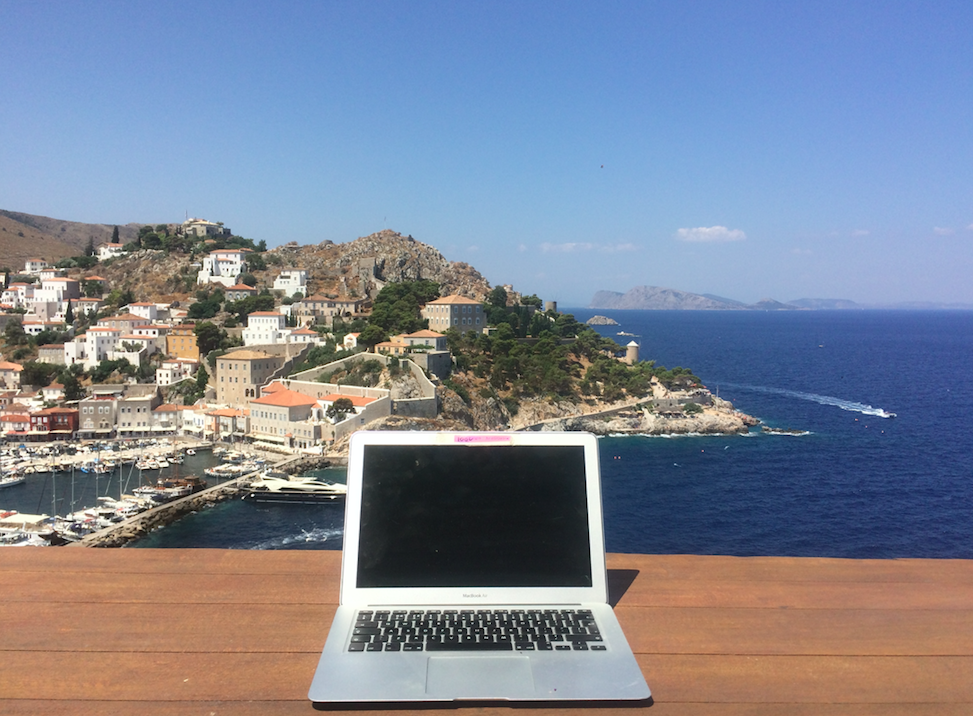
I’m out of the office. Well, I’m away from my usual office at any rate. I’m writing and my mind has wandered off into the distance to consider how a room, or a view at least, can impact how one thinks or what one writes. I just searched ‘writers’ rooms’ and got this load of clutter below. I’m not sure I could write surrounded by that much distraction. On the other hand clutter can result in accidental combinations of information so perhaps what you really need is both. You need clutter to input random information and then emptyness to start connecting them in novel ways.
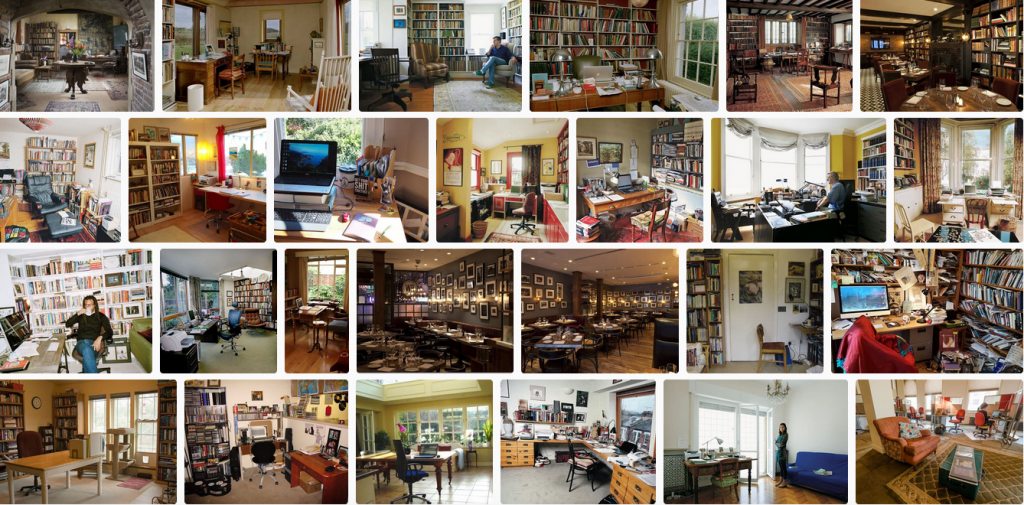
Something I wrote for Fast Company 14 years ago (!!!) about the relationship between spaces and ideas here.
It breaks my heart, but sometimes you just have to kill an idea you’ve been working on for ages. Seems this book idea is dead. But there’ll be another one along shortly….
This book is a gentle plea for a different kind of thinking. Specifically, it’s an appeal for a calmer, slower, deeper and far more reflective mind-set, which I firmly believe is necessary if one wishes to escape from the humdrum and enter the extraordinary.
Calling this essay How to Think could be problematic. Do people really want to be told how to think? Surely thinking is an intuitive skill that doesn’t need thinking about? This is partly true, but on another level thinking requires conscious and deliberate effort.
Have you ever really thought about this?
We aren’t generally taught how to think at school and we don’t think about our thinking much thereafter. This is a great shame, because our thinking, especially our imagination, is perhaps the most precious natural resource we’ve got on earth. But it’s one that’s being polluted by endless streams of digital interruption and chocked by the narrow nature of education and the short-termism of politics and business. Our liberty to think openly and freely is also being eroded by universities supporting ‘no platform’ policies and by the visceral hatred endemic in so much contemporary debate.
This hasn’t always been the case, and it’s not true everywhere either. But our fixation with doing many things as quickly as possible at the lowest possible cost is making us, our institutions and society infirm. Even weekends and holidays, which were once times for relaxation and reflection, have been invaded by devices that demand our constant attention and disconnect us from our true selves. I might be wrong, but the collateral damage of our hyper-connected world might be that we are becoming less connected, both to ourselves, others, and the wider world. Our mental focus, like our education system, is shrinking when it should be expanding. We need to bring back breadth, depth, reflection and, above all, relentless curiosity.
Numerous people have written about the neuroscience of thinking, especially how our sly subconscious gets us into so much trouble.
We are surrounded by the debris of this on a daily basis.
We rush into roles, responsibilities and relationships without properly thinking, or we think about such things in a singular, linear and unconnected manner. We ignore the layered lessons of history, the cyclical nature of so much change and the counter-forces that often emerge in response to significant innovations or events.
Essays about the creative process abound too, but these tend to exist within a sterile vacuum divorced from real world pressures, organisational psychologies and institutional pathologies. Have you ever tried really thinking at work? Without permission? For a whole day? Without getting reprimanded? Or what of the impact of mood on thinking? Why don’t we think about this more often? Why are we so careless with the physical environments in which we expect our co-workers to think and our children to learn? On all counts, the result is thinking that’s becoming increasingly timid, lazy, shallow, sterile and one-dimensional, which is making us open to unmanageable surprises.
I would like to address all these issues and more, but from a positive perspective. I am less concerned about why things go wrong and more interested in how to put them right. How can we manipulate our meddlesome minds to make them more attuned to new risks? How can we become more sensitive to the faint murmurs that are so often the forerunners of opportunity? How should we embolden individuals and organisations alike to filter out utter nonsense, spot valuable anomalies or simply stop for a moment and take stock of where they are and what they are doing?
Most importantly, we are potentially on the cusp of a radical revolution in artificial intelligence. How might we educate our minds – and those of our children and our children’s children – to be open, adaptive and resilient in such a potentially disruptive environment? How should we think when machines can do this for us? How can we ensure that one of the major consequences of machines that can think isn’t people that don’t or needn’t? How do we guard against a situation where complacency or disenfranchisement means we no longer ask important questions like these?
I think the answer to all this is to become very good at the things these machines are very bad at. In short, we must work tirelessly to unleash our unique ability to think conceptually, counter-factually, originally and empathetically and inspire others to do the same.
And to do this I believe we need a moderate level of disconnection and a significant amount of time. Hence, we need to reclaim solitude, silence and patience. Without this no stable sense of self can emerge. Only when we are firmly anchored in ourselves can we hold useful conversations with others from which new ideas and insights will emerge. Only when we achieve a graceful lightness of being can we float above our everyday existence and jump joyfully from the world of sterile facts – the world as it is today – to the realm of imagination and ideas – the world as it might be tomorrow.
We cannot construct a long-term strategy for accomplishment, let alone one for the survival of our species, when we are smothered by busyness and distracted by ephemera. So, sit down, turn off your devices, un-divide your attention and come with me for a gentle stroll down some overgrown paths of possibility.
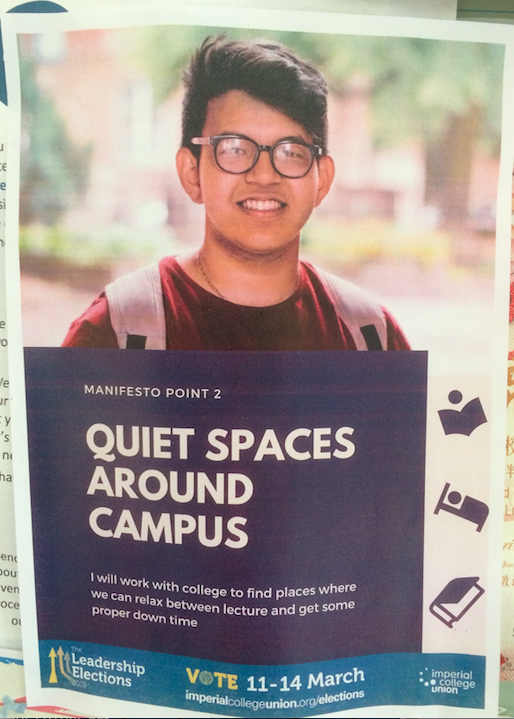
Have you slept in a tent alone—a tent
Out under the desert sky—
Where a thousand thousand desert miles
All silent round you lie?—
The dust of the aeons of ages dead,
And the peoples that trampled by?
Have you looked in the desert’s painted cup,
Have you smelled at dawn the wild sage musk,
Have you seen the lightning flashing up
From the ground in the desert dusk?
Have you heard the song in the desert rain
(Like the undertone of a wordless rhyme?)
Have you watched the glory of colors flame
In its marvel of blossom time?
Have you lain with your face in your hands, afraid,
Face down—flat down on your face—and prayed,
While the terrible sand storm whirled and swirled
In its soundless fury, and hid the world
And quenched the sun in its yellow glare—
Just you, and your soul, and nothing, there?
If you have, then you know, for you’ve felt its spell,
The lure of the desert land,
And if you have not, then I could not tell—
For you could not understand.
The Lure of the Desert Land
by Madge Morris Wagner